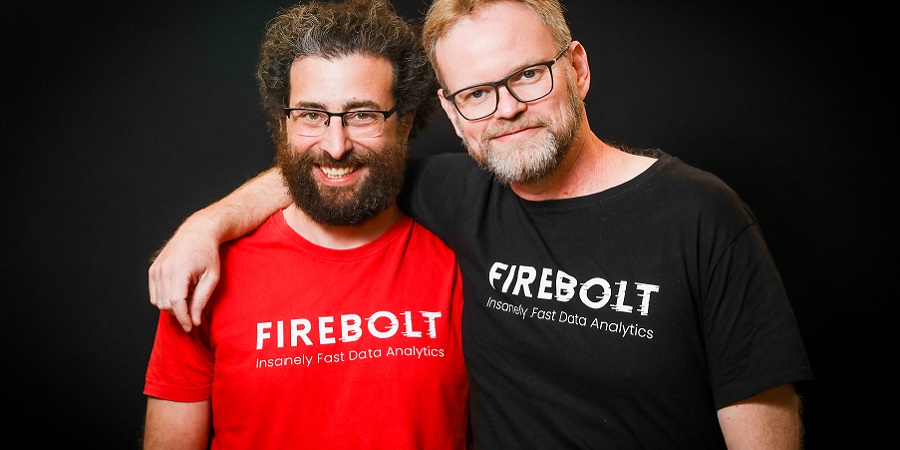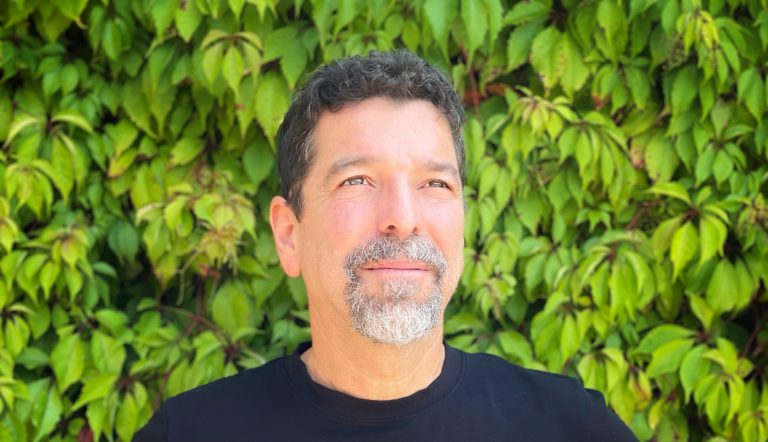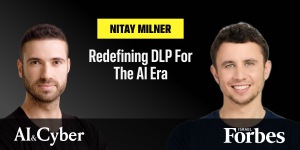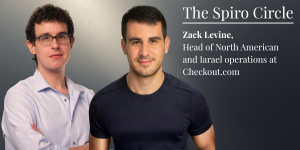At first glance, it’s hard to notice anything unusual in the venture capital fund Zeev-Ventures, which was established by Oren Zeev a few years ago.
In the 21st century ‘Gold Rush,’ with masses of entrepreneurs flocking west and vast amounts of money flooding the Silicon Valley, there is no doubt that there is no shortage of investors trying to hunt the next unicorn.
It’s also not rare to find funds that invest hundreds of millions of dollars a year and manage billions, just like Zeev’s.
What is unusual is that behind the successful fund, which shows exceptional performance and results every year, is just one man – a real one-man show.
The fund’s website does not have predictable smiling pictures of the partners and employees or long descriptions glorifying their work.
Instead, it consists of one clean page with the words Zeev-Ventures in bold white letters at the top, alongside a long list of the start-up companies he currently invests in.
Quite a few of which are familiar companies, already valued at billions and revered as great successes.
Zeev’s fund has no investment teams, no managers or partners, no consultants or analysts. There has never been a partners’ meeting at the fund’s offices, no investment committee, nor a single memorandum.
The fund doesn’t even have an official office. Zeev makes investment decisions alone, usually from the neighborhood coffee shop, which he uses as his office instead.
The way he sees it, all of those extras are a waste of the most valuable resource of all in the venture capital industry – time. “It’s just me and my commitment to put my connections, my experience, and my drive on the table. It’s all about my willingness to do everything I can to support the remarkable journey of the entrepreneurs toward their goal – building reality-changing companies,” he declares.
A Short Period of Retirement
“I do everything on my own, Even talking to journalists,” says Zeev. “That’s also the reason I don’t want to hire people, simply because I don’t have time for it,” he emphasizes ironically.
“I learned to manage my own time in an ideal manner, and when I have to, I am not afraid of pressing the breaks a bit and slowing down the pace. The fact that I operate alone actually allows me to be much more efficient.”
The efficiency of managing the lean and fast operation that Zeev speaks of does not only come down to saving time. It ultimately translates into much greater profitability than that of funds managing and investing similar sums.
Today, Zeev-Ventures manages over a billion dollars and invests hundreds of millions of dollars each year. From the beginning of this year, the fund has already invested over 350 million dollars. “It is equivalent to the volume of funds that manage billions of dollars in terms of operations, like five or six funds put together,” he points out.
Zeev (56) is a trained engineer with a bachelor’s degree in electrical engineering from the Technion University in Haifa and a Master’s degree from the European business management institute INSEAD.
He made his first moves as an investor when he was a manager at the Apex fund over 25 years ago, during the exciting times of the rise of internet companies and the inflating of the dot-com bubble.
After twelve years at Apex, Zeev decided to switch to education, and he began teaching Math at a school. “After leaving that job, I didn’t need to work anymore. I had enough for my family and me,” he admits. But the investment world attracted him, and only several years after leaving Apex, Zeev began to invest in his private funds.
“I was investing my own money, and I didn’t pretend to be an “angel investor.” I acted as a venture capitalist regarding the amount of money I was investing in and managing it. I led the fund rounds; I was on the board; every round that I led was in the scope of many millions.”

The ‘Zeev Method‘
During that same short period, Zeev made several seed investments in small start-ups such as Houzz, TripActions, Tipalti, and Chegg — investments that turned out to be highly successful within a few years.
Houzz, for instance, an architecture and house design platform founded by Adi Tatarko and Alon Cohen, has since completed more than 600 million dollars in funding, soaring to a valuation of around 4 billion dollars.
Tipalti, a start-up that develops automizing payments solutions, was valued at over $2 billion a year ago. TripActions, the business tourism company of Ilan Twig And Ariel Cohen, raised $155 million at the beginning of the year, according to a valuation of 5 billion dollars (which also granted the founders a spot on Forbes Israel Israeli Billionaires list, along with Adi Tatarko).
Chegg, a company Zeev invested in during the early seed funding stages (as he tends to do in almost all of his investments), went public in 2013 with a valuation of 1.1 billion dollars. The start-up is currently traded at no less than 12 billion dollars valuation.
Zeev worked like a private investor using his own money and acted less like a fundraiser that invests money from other investors until those successful investments.
But then, a chance encounter at a coffee shop (where else) gave way to Zeev-Ventures and an additional boost to Zeev’s investment career. “During the early stages of my career, I had a lot of opportunities to raise funds. People tried to persuade me to take their money and invest it, but I refused. It did not suit me at that time. I was doing great, and I didn’t think it needed any improvements,” he says.
“One day, I was having breakfast with a known figure in the industry. He asked me why I didn’t raise money, and I replied negatively, as I had in the past. Then he surprised me and offered to be my investor, just as an experiment. It was an opportunity that I hadn’t even considered,” says Zeev.
“Raising money comes with a long-term commitment, and yet, at the exact moment that he suggested that to me, it was hard for me to refuse. I said, let’s do it, let’s try it, and we agreed that we would try it out for a year, and I could decide then what I wanted to do next.

During this time, I found out that I could raise money and continue to operate the way I used to before, meaning with no permanent office, no secretary, no analysts – Just me. Exactly like before,” he reveals.
It seems it works fantastic for him. Without even meaning it, he invented a new method, a new way of managing venture capital investments, and as the results prove, his approach works efficiently.
Zeev’s funds began raising money at an accelerated rate, and within five years, he had multiplied the volume of his fundraising tenfold.
Just like that, the 20 million dollars investment, which started to form in this exact breakfast in 2015, grew and multiplied within a year to a fund of 50 million dollars. After two more years, it got to 120 million dollars. In 2020, the fund crossed $200 million in funding, and by this year, the amount is approaching $300 million.
“What I really care about is being the best investor for the the entrepreneurs that work with me”
However, Zeev does not consider it as the main point. The evidence of success is found elsewhere, he states. “What I really care about is being the best investor for the entrepreneurs that work with me. That also explains the performance. It’s not that I’m smarter than the other investors,” he says modestly.
“Explorium and Firebolt, in particular, are good examples of companies that wanted me as an investor, and we are talking about companies who could have raised money from whoever they wanted. They had plenty of offers from lots of investors on the table.”
“I constantly feel that I have to earn the trust that these companies put in me. That’s also the reason that my mindset is geared towards working for entrepreneurs. It is evident to me who the client is. My motivation is to grant the best professional support I can to the best entrepreneurs that I can find, creating the most exciting things.
“All of the companies that I am invested in, without exception, are ‘market leaders’ or hope to become such. Even more importantly, all companies are doing something that creates real value for the environment or their industry. That’s exactly the reason I only invest in companies that I feel proud to tell others about.”
Would you avoid investing in a company with excellent profit potential if you don’t feel comfortable with its activities?
“Yes. I won’t invest in a company that I don’t feel I would be proud to talk about in a social context. I don’t need any more money, so why would I do that?”
That’s another thing that makes you unusual in your field.
“Perhaps. But that’s less important. What’s more significant is my work method. The fact that I work alone, without a team and an office, but I still manage to operate professionally, gives me a significant competitive advantage compared to other investors.
I can respond and act much quicker than anyone else. I can mobilize and make progress very quickly, in a precise and efficient way, even without team meetings or investment committees”.
“It is also an advantage for the entrepreneurs that work with me, because they always know exactly where they stand. They will never hear something like: ‘Hang on, I need to check something with my partners’ or ‘Let’s prepare a good speech for the partners, and then we’ll decide.’ My goal is that the entrepreneurs feel good with their decision to work with me.
“As I see it, the most important parameter is client satisfaction. It might sound altruistic, but in the long term, it is the best strategy. That’s what gets me the best up and coming entrepreneurs, those who choose me even though I am not the only investor that is interested in investing in them”.





